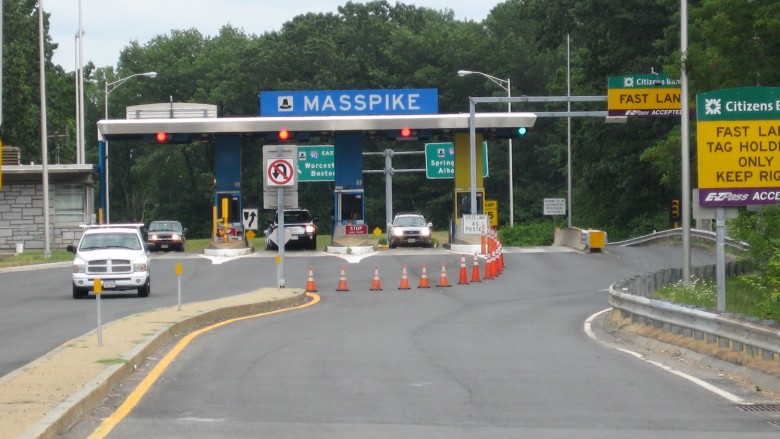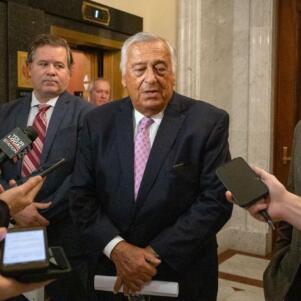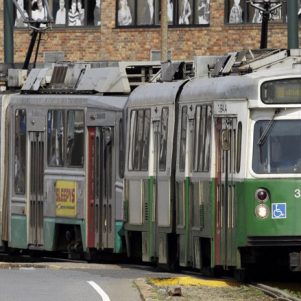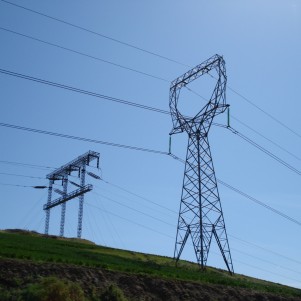All-electronic Mass. Pike toll-collecting cost savings shrink
By State House News Service | December 2, 2015, 16:16 EST
 Tollbooths like this one in Ludlow will soon be replaced with all-electronic tolling. (Photo courtesy of Wikipedia.org)
Tollbooths like this one in Ludlow will soon be replaced with all-electronic tolling. (Photo courtesy of Wikipedia.org) BOSTON – Drivers west of Route 128 will still have to pay to use the Massachusetts Turnpike where all-electronic infrastructure will replace tollbooths next October, though switching from human collectors to machines won’t cut costs as much as originally forecast, Transportation Secretary Stephanie Pollack told lawmakers on Wednesday.
Saying the nearly $300 million in western Turnpike bonds from two decades ago will be paid off in January 2017, Pollack said the highway is “far” from a state of good repair and while the state will hold hearings the plan will be to “leave the tolls up.”
The way those tolls will be collected will change from booths with toll collectors and an EZ-pass non-stop option to all-electronic tolling program where a gantry system will dock money from pass holders and bills will be sent to drivers without passes. There is an ongoing pilot program on the Tobin Bridge.
Under the new system, drivers would be charged in the Callahan Tunnel to East Boston, rather than just on the Sumner Tunnel in the other direction, Pollack has said. She has said the tolling gantries would be spaced out “every so many miles” on the turnpike leading to different forms of charging for drivers.
On Wednesday, Pollack noted there were “representations made” that open-road tolling could save the state $50 million, though she said with the cost of the electronic tolling the savings would be more like $30 million to $40 million.
Pollack also said the open-road tolling would offer a better experience for drivers and avoid the accidents that occur in front of toll booths.
Much of Wednesday’s testimony before the Transportation Committee concentrated on roads and highways, and Rep. Bill Straus, a co-chair of the committee, suggested a competitive grant fund for transportation infrastructure that crosses municipal lines in addition to the longstanding Chapter 90 local road funding program.
Pollack told reporters the state is falling short of its goal to spend $3 billion on MBTA and Massachusetts Department of Transportation capital projects this year because the ballooning cost of the Green Line Extension has halted new contracts on that trolley project. Pollack is working to develop a rolling five-year capital plan for both MassDOT and the MBTA, and she said projects would be scored and information would be available on the “universe” of projects, rather than just the projects selected.
The state’s Highway Division is responsible for 9,500 lane-miles of highway, and 81 percent of interstates are in good or better condition compared to 64 percent on other state roads, according to MassDOT. MassDOT owns 267 miles of active rail and the MBTA owns 388 miles.
About 53 percent of the state’s inventory of more than 5,000 bridges is older than 40 years and the costs for the 8-year $3 billion accelerated-bridge program will be paid through 2044, Pollack said. About 270 bridges will have been repaired or replaced in that program.
The state spends about $173.7 million annually on structurally deficient bridges – currently numbered at more than 400 – and if the state could spend $450 million the number of structurally deficient bridges would be eliminated in five years, Pollack said.
Written by Andy Metzger











